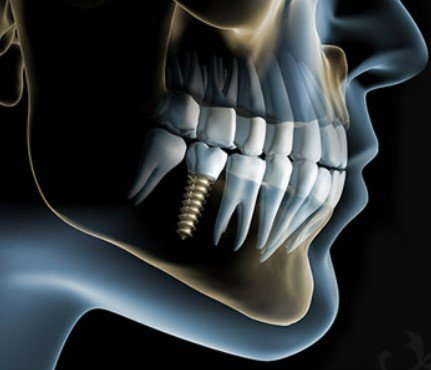








A number of diseases can cause salivary gland disease. These range from cancerous tumors to Sjögren’s syndrome. While some conditions go away with time or antibiotics, others require more serious treatments, including salivary gland surgery.
Saliva is essential for speech and swallowing and plays an important role in maintaining oral health by maintaining the integrity of the oral mucosa.
It contains a variety of proteins with anti-bacterial activity and salts and minerals including fluoride which acts as a buffer and is, therefore, important in the control of dental caries and periodontal disease.
Saliva is produced by the three pairs of major salivary glands which are the parotid glands in the preauricular region, the submandibular glands, and the sublingual glands on the floor of the mouth.
In addition, there are about 200 minor salivary glands distributed widely just below the mucosal lining of the mouth and on the hard and soft palate, cheeks, lips, and floor of the mouth.
Salivary glands can be involved in many pathological processes, including congenital abnormalities, infections, other inflammatory disorders, obstruction, neoplasia, and degenerative disorders.
The most frequent problems seen in clinical practice are due to infections, obstruction from stones, benign and malignant tumors, and destructive auto-immune disease.
Infections – The mumps virus is the most frequent cause of salivary gland infection. Bacterial infection of the major glands usually arises from the mouth and is often a recurrent problem especially in a gland previously damaged by stones or irradiation or in debilitated patients.
With the extended survival of HIV-positive patients receiving triple chemotherapy, an increasing variety of salivary gland disorders are being seen. The specialist knowledge of dental and oral diseases is necessary for the proper management of these patients.
Obstruction – Calculi or stones can form in the major salivary glands and their ducts, in a manner directly analogous to the gall bladder and bile ducts and the kidney and ureters.
They cause obstruction of salivary outflow typically with pain and swelling at meal times. If the obstruction is not relieved the gland becomes damaged and often requires an operation to remove the gland.
Obstruction of minor salivary glands also occurs resulting in cyst-like swellings in the lips and cheeks.
Tumors – A very large variety of both benign and malignant tumors can involve any of the major or minor salivary glands. Although the majority are benign they grow relentlessly to reach grotesque proportions.
Malignant tumors of the salivary glands account for 2% of all cancers. The management of salivary gland tumors requires specialized surgical skills due to the proximity of important cranial nerves and the often aggressive nature of the disease.
Often patients will require a combination of surgery and radiotherapy to control their disease which should be managed in multi-disciplinary clinics.
Degenerative Disease – The salivary and lacrimal glands are subject to an auto-immune destructive condition (Sjögren’s syndrome) which results in dry eyes and a dry mouth.
Sjögren’s syndrome is often accompanied by other systemic diseases such as rheumatoid arthritis, systemic lupus erythematosus, or primary biliary sclerosis.
Patients develop severe oral symptoms relating to the failure of salivary production and approximately 10% of patients with Sjögren’s syndrome will develop a non-Hodgkin’s lymphoma.
These patients require meticulous follow-up in order to detect the onset of lymphoma at an early stage when treatment is still effective.
Salivary Gland Disease Malfunction
Salivary gland malfunction is more common among adults and usually involves too little saliva production. When the flow of saliva is insufficient or almost nonexistent, the mouth feels dry. This condition is called xerostomia (dry mouth).
Certain conditions can decrease saliva production:
Diseases, such as Sjögren syndrome, rheumatoid arthritis, and lupus (systemic lupus erythematosus)
Infections, such as human immunodeficiency virus (HIV) infection
Drugs, such as certain antidepressants, antihistamines, antipsychotics, anti-Parkinson drugs, sedatives, methyldopa, diuretics, and illegal methamphetamine
Chemotherapy or head and neck radiation for the treatment of cancer, or radioactive iodine for the treatment of thyroid cancer
A dry mouth due to radiation is usually permanent, especially if the radiation dose is high. A dry mouth due to chemotherapy is usually temporary.
However, not all cases of dry mouth are caused by salivary gland malfunction.
Helpful tips for Salivary Gland disease
Removal of a salivary gland doesn’t affect overall saliva production, but radiation therapy often causes dry mouth, which can increase your risk for cavities and mouth infections. Here are some tips to keep your mouth moist:
- Drink plenty of fluids throughout the day and take a water bottle with you wherever you go.
- Keep your mouth clean. Rinse your mouth before and after meals with plain water and brush your teeth after meals.
- Avoid foods that stick to the roof of the mouth like peanut butter or soft bread.
- Take small bites, and chew your food well.
- Suck on sugarless candy or chew sugarless gum to stimulate saliva.
- Avoid commercial mouthwashes, alcoholic and acidic drinks, and tobacco.
- Use over-the-counter saliva substitutes to add moisture to your mouth